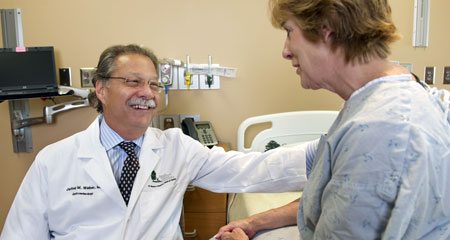
Patients should get health information from doctors, not quacks.
Our challenge is that there are literally billions of dollars to be made selling fake medicine and dubious treatments. This means that unscientific practitioners have an immediate financial incentive to promote themselves and their treatments, and they will tirelessly do so, on any front they can find. Further, the stars of unscientific medicine have the resources to do so – to intimidate critics, cozy up to politicians, open centers in respected hospitals, and market their brand.
We simply don’t have the manpower to confront them on every front, and the mainstream scientific and medical communities are frankly just not paying enough attention. They are largely unaware that pseudoscience is infiltrating their profession right under their noses, or they have been lulled into thinking this is a small and benign phenomenon.
Patient groups
These many fronts in which science confronts pseudoscience include the media, hospitals, continuing education, journals, the marketplace, politics and regulation, and research funding.
I cannot remember if we have ever written about another front that does not get much attention – patient groups. For just about every disease there is a grass-roots group of patients, their families, and experts and others interested in the disease. These groups raise money for research and to help patients with services, promote awareness of their disease, run support groups, and act as a source for information and referrals.
Typically each group is independent and is run by dedicate lay people. They provide an incredible service and are invaluable.
They are also a convenient target for charlatans, and yet another front on which we need to confront pseudoscience. For example, I recently received the following e-mail:
I just wanted to thank you for the work you do re pseudoscience. I have been reading your blog on Science Based Medicine regarding alternative medicine. I am the parent of a grown child with severe bipolar disorder (he’s progressed well on medicine and therapy) so we belong to some support groups. Problem is they want to have lecture series on alternative medicine, including naturopathy. Recently I’ve been educating myself on the subject, to the point where I am extremely concerned by what I’m reading. My concerns have been dismissed by these groups–International Bipolar Association and DBSA. Earlier in my life I was familiar with the works of James Randi and others, so I already had some basic understanding of the educational work you do. There’s much much more I would like to say, but that will have to wait. Again, thank you thank you.
I have received many such e-mails over the years, and have encountered this phenomenon directly myself. CAM proponents have found they can market themselves and their treatments directly to patients by giving “educational lectures” to patient groups. These lectures are just sales pitches. I have even encountered this in public schools, offering “health lectures” promoting things like acupuncture or chiropractic.
Patient groups are an ideal target for such pseudoscientific promotion. They are typically run by lay people who have educated themselves about their disease but lack formal training in science. They are clearly passionate about supporting patients, which often means supplementing standard care with other resources.
When a naturopath or chiropractor comes calling, offering those extra resources their doctors may not be offering, that seems to fit right in with their mission. Once a few key people in a patient group are indoctrinated into the CAM philosophy, the patient group basically becomes a marketing organ for pseudoscience.
If some members, like the e-mailer above, are uncomfortable with the pseudoscience, they generally lack the expertise or confidence to effectively oppose it. Outside experts have been preemptively portrayed as closed-minded or protective of their turf.
This phenomenon creates a thousand new fronts on which to confront medical pseudoscience.
What to do?
There is no easy solution to this problem. SBM tries to be a resource for those people, like the e-mailer, who recognize the dangers of pseudoscience. It gives them the specific information and the confidence to more effectively hold the line, but clearly it is not enough to just provide an information resource.
We do not have enough experts in science-based medicine and pseudoscience to effective confront pseudoscience in each patient group. What would need to happen is for the doctors and scientists who are experts in each specific disease to vigorously take on the role of promoting proper standards of science in such groups. In fact, they need to do it proactively – bake such standards, and awareness of health fraud and dubious treatments, into the resources of the group itself. I have seen this done effectively as well.
Further, patient advocates need to understand the nature of pseudoscience in medicine and that if they truly wish to advocate for their patients they need to fight against those who wish to exploit them.
The ultimate solution, however, is to have proper regulation of medicine in the first place.

